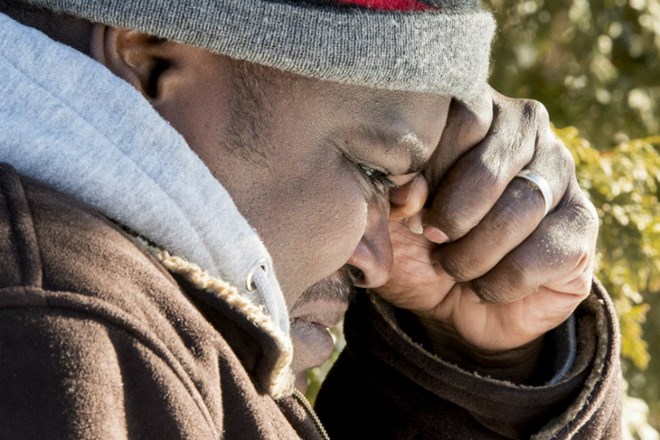
Friday February 24, 2017

omalis have experienced one of the world’s longest and most intractable refugee crises. They have confronted xenophobia in South Africa and the threatened closures of Kenyan refugee camps – but have also seen the power of the courts as allies.
For Casiman Abdullahi, Jan. 30 was a very good day. Until suddenly it was a very bad one.
He spent most of it buoyant, thinking of his interview in Cape Town the following morning with the Resettlement Support Center, which screens refugees for admission to the United States. After four years, this was to be one of the very last steps in his application to leave South Africa, where he had been a victim of xenophobic violence, for the United States.
But that evening as he was getting ready for bed, his phone rang.
On the line was someone from the RSC. She had bad news, she said. The interview was canceled. She explained that the new American president was temporarily barring all Somali migrants, and said she’d call back in a few months when she knew more.
For Mr. Abdullahi, that was bad news, but it wasn’t particularly surprising. Few people know better than Somalis what it is like to rely on the goodwill of countries that are not their own – or how quickly that goodwill can dry up without warning.
Just months earlier, Kenya, which is home to nearly half of Somalia’s 885,000 refugees, had announced its intention to close the world’s largest refugee camp and begin sending its mostly Somali residents back home. And in South Africa, where Abdullahi has lived for more than a decade, xenophobic violence seems the Rainbow Nation’s seasonal disorder, flaring up whenever the political mood turns sour.
Somalis often remark, only half jokingly, that it’s a good thing they are a nomadic people – seemingly hardwired with the ability to pick up and start over, again and again, whenever the situation demands.
“We are always in motion,” says Abdi Osman, the secretary general of the Somali Community Board of South Africa, who hopes to soon leave for the United States as well, to join a wife and step-daughter already living there. “If we are not moving, we are thinking of the next move.”
Bu as the products of one of the world’s longest and most intractable refugee crises, the Somali diaspora’s experiences may also be useful guides for the people and host countries that come behind them. Particularly as conflicts in places like Syria and South Sudan grow deeper and more tangled, and their refugee populations larger and more sprawled, the experiences of Somalis may become crucial to the world’s understanding of what to do next.
A cold shoulder – and the power of the courts
And in recent days, Somalia’s diaspora has played witness to both the brusque power of refugee haven countries to suddenly shut their doors – as happened in the United States when President Trump signed an executive order temporarily barring migrants from seven countries including Somalia – and also the power of courts, civil society, and public opinion in those same places to crack them open again.
In the span of just a few days in early February, a ruling from the Ninth Circuit Court of Appeals in the United States halted implementation of Trump’s immigration order, while on the other side of the world in Nairobi, the country’s high court stopped the closure of the world’s largest refugee camp, Dadaab, which is home to more than 250,000 people, most of them Somali. (The government had initially announced plans to dismantle the camp, which it claims is a breeding ground for Islamist radicalism, last May).
Both court decisions followed massive public outcries. Both also signaled to many who work with refugees in the two countries that courts could be powerful allies for refugee communities – even when public opinion had turned against them.
Having level-headed courts weigh in on refugee rights can be especially important when public sentiment toward migrants is driven by fears of terrorism, which often seems immune to data or analysis, says Laetitia Bader, a researcher for Human Rights Watch focusing on Somalia.
In Kenya, for instance, Somali refugees have been blamed for a number of terrorist attacks and threats, she notes, but “we haven’t seen any evidence that Somali refugees have been responsible for any attacks on Kenyan soil.”
Still, if courts can provide a legal spine for the protection of refugees in a country, they often struggle to ensure their directives are carried out, says Victor Nyamori, a refugee officer with Amnesty International in Kenya.
“As much as this judgment asserts the rights of refugees, there are many other things that need to be done in order to ensure they’re actually protected,” he says.
For many Somalis, indeed, the primary effect of these two court orders may be less practical than imaginative. Without Dadaab’s closure or a travel ban hanging over their heads, the future can more easily take shape. Plans can be made, applications lodged, tickets booked.
“And then,” says Mr. Osman, of the Somali Community Board in Johannesburg, “we do the only thing we can do. We wait for what comes next.”